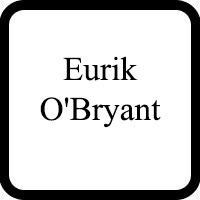Ryde Bankruptcy & Debt Lawyer, California
Sponsored Law Firm
-
 x
x

Click For More Info:
-
Fitzgerald & Campbell, APLC
400 N. Tustin Avenue Suite 401 Santa Ana, CA 92705» view mapBankruptcy & Debt Lawyers Who Solve Serious Problems
We are a motivated, respected, and experienced law firm that provides affordable services that get results.
800-732-9061
Eurik O'Bryant
✓ VERIFIEDBankruptcy & Debt, Wills & Probate, Intellectual Property, Landlord-Tenant
Eurik is a shareholder at Sekhon & O’Bryant specializing in the practice of contested trust and estate matters, probate administration, commercial l... (more)
Simran Singh Sekhon
Business, Bankruptcy, Trademark, Contract, Wills & Probate
Simran Sekhon is a practicing lawyer in the state of California.
Len Randall Reidreynoso
Litigation, Estate, Business, Bankruptcy & Debt, Personal Injury
Status: In Good Standing
Ruby Ann Wolff
Commercial Bankruptcy, Consumer Bankruptcy, Bankruptcy Litigation
Status: In Good Standing Licensed: 35 Years
Darryl Edmond White
Estate, Employment, Divorce & Family Law, Bankruptcy & Debt
Status: In Good Standing Licensed: 27 Years
Andrew Peter Rausch
Bankruptcy, Personal Injury, Contract, Dispute Resolution, Elder Law
Status: In Good Standing
Peter Gerard Macaluso
Consumer Bankruptcy, Bankruptcy Litigation, Commercial Bankruptcy, Bankruptcy
Status: In Good Standing Licensed: 23 Years
 Gregory Fitzgerald Santa Ana, CA
Gregory Fitzgerald Santa Ana, CA AboutFitzgerald & Campbell, APLC
AboutFitzgerald & Campbell, APLC Practice AreasExpertise
Practice AreasExpertise


